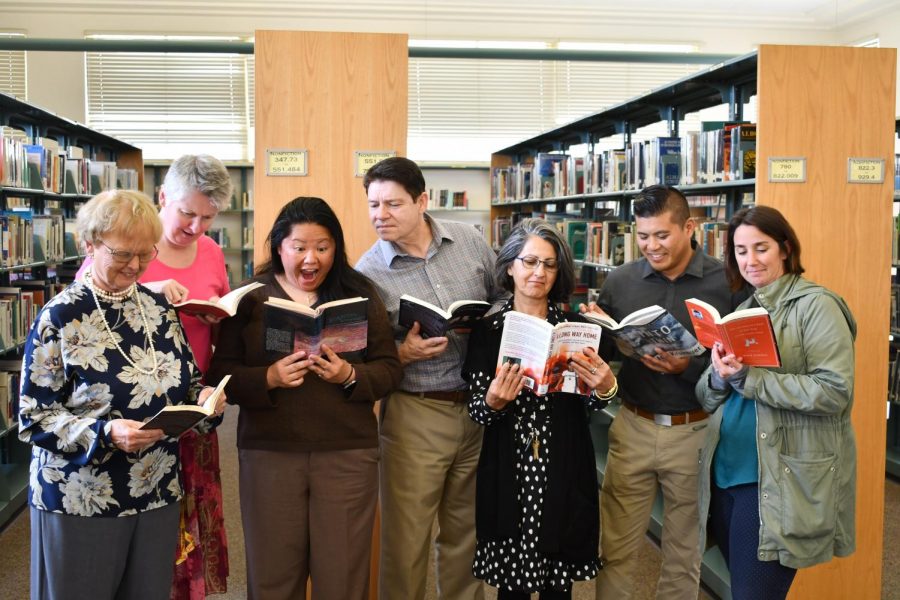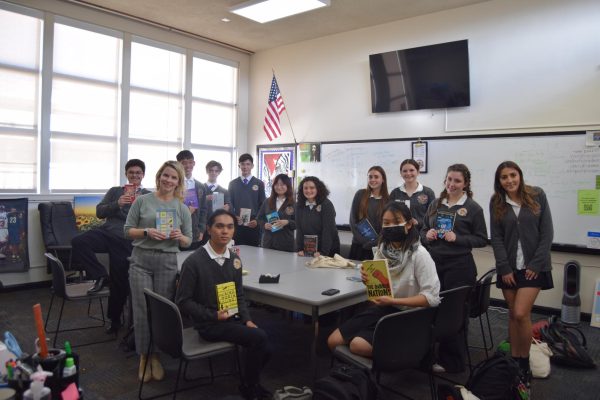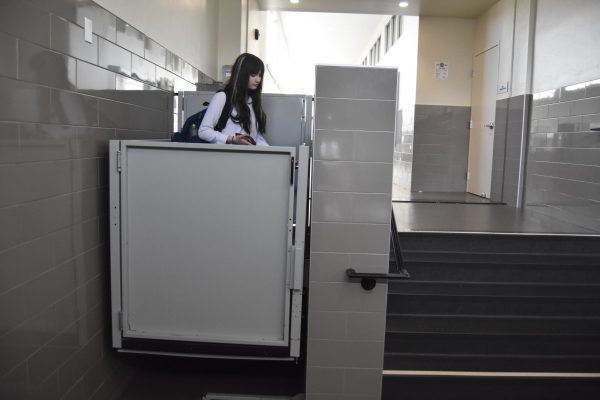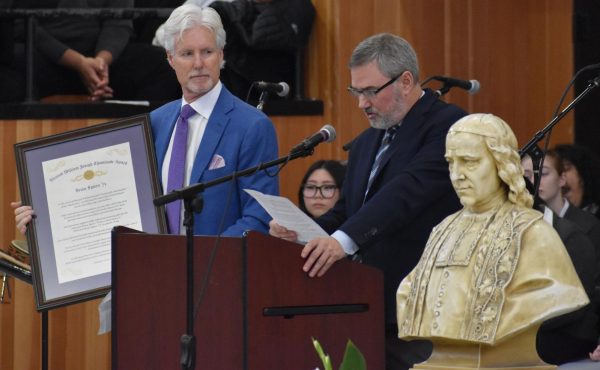Students spend summer studying stories
The math department graded the summer reading assignment this year.
November 6, 2018
The 2018 Summer Reading assignment underwent somesignificant changes, promptingvarious responses and questions.
According to Michael O’Brien, Dean of Academics and member of the Summer Reading Committee, “The summer reading assessment grew out of an agreement [that still stands today] that students should be encouraged to read over summer. [The Committee] came to the conclusion that the assignment should not be punitive, but rather it should be encouraging and rewarding for the students.”
Therefore, various teachers throughout the school work together to assemble a project that will keep students at least somewhat focused on literature and education.
The selection of books was originally put together by the Summer Reading Committee, consisting of Librarian Danny Appel, Dean of Academics Michael O’Brien, and English teachers Diana Assereto, Mary Dalton, Susan Sutton, and Michael Vezzali-Pascual. Starting sometime near the end of the first semester, usually November, these members decide what books will be read, and how the student work will be assessed.
As a member of the committee, Appel explained, “We narrow it down according to age level appropriateness, relevance, whether the book has or will be used as a course assignment, and most importantly, whether it will be of interest to students. Final approval comes from Mr. Currier and Mr. Reardon.”
Appealing the scope of ages found at Riordan, the committee chose various books, including “Ball Don’t Lie” by Matt de la Peña and “The Curious Incident of the Dog in the Night Time” by Mark Haddon.
After the list was agreed upon, it was communicated to the students, who then decided on a book to read. The student reaction to books was generally positive, as every student found a novel that more or less suited his interests.
Nicholas Lundquist ’20 said, “I believe that this year’s book selection was very well rounded in a sense that there were books that were suited for a wide variety of readers.”
The books ranged from topics such as sports and mystery to issues including imprisonment and totalitarian regimes like the Nazis, suiting the diverse interests of the Riordan community. According to the survey taken by
Riordan’s newspaper, The Crusader, the most popular book this year was “Fantastic Voyage” by Isaac Asimov, and the least popular was “This Boy’s Life” by Tobias Wolff.
After completing their the assignments, many returning students arrived at school bewildered after hearing that the assignment would be graded by the math department.
From a student perspective, the reviews were mixed. On one hand, many students appreciated the transition of grading.
Lundquist continued, “The transition of grading the assignments to the math department had good intentions on grading how well students followed the instructions. It also trained teachers who are not usually used to grading essay style assignments to understand the grading style and could help them incorporate that understanding into their own teaching and grading.”
On the other hand, some students felt confused by the change. Edric De Mesa ’19 said, “When I heard that the math department was Chair, “The reason why the grading the summer reading, I felt really confused as to why a non-literature teacher was grading literature homework.”
According to Mary Ann Datoc, the Math Department English department did not grade the summer reading is because the summer reading assessment is a schoolwide assessment, which means that every subject should grade the assessment, not only the English department.”
Mary Dalton, the Chair of the Riordan English Department, added, “[The Summer Reading Committee] made the assessment straightforward because there would be so many [to grade]. The assignment focused on following directions and seeing what the students thought about the books, so virtually any teacher could grade the responses.”
O’Brien added, “It’s not a perfect model, and it certainly could be better, like for instance, getting the word out regarding who will be assessing it and the process itself. But since [the Summer Reading Committee] has turned to our current system, we’ve noticed more and more students being invested in their books over summer. This is just like the house system; we need everyone in the school to be invested in order for this program to work.”













